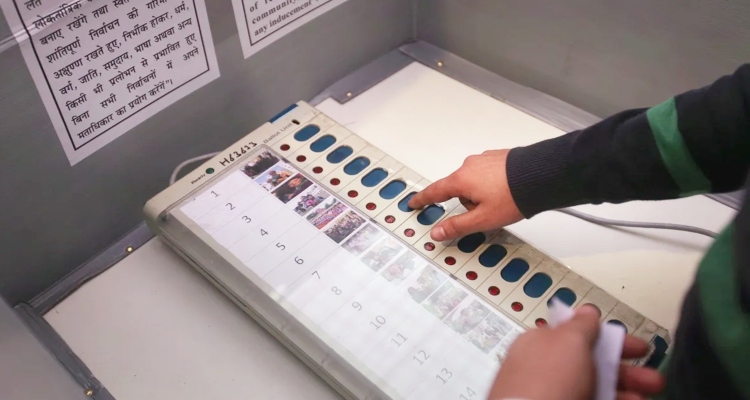
The Supreme Court on Friday dismissed a Public Interest Litigation (PIL) alleging a violation of voter secrecy in the existing electoral system, stating that there was no merit in the petition.
A bench comprising Justices Sanjiv Khanna and Dipankar Datta dismissed the petition and informed the petitioner’s counsel of their decision.
What the Apex Court Said?
The bench noted that the petitioner’s counsel had not read the April 26 verdict of the apex court, which rejected allegations of manipulation of Electronic Voting Machines (EVMs). The counsel for petitioner Agnostos Theos claimed that a polling officer could see the VVPAT slips and the data stored in the polling device.
“From the VVPAT slips and data in EVMs, the presiding officer can identify which voter cast his vote for which party,” he asserted. The bench responded that had he reviewed the April 26 verdict, he would not have made this submission.
‘No Merit’
“There is no way a presiding officer can know which voter cast his vote for which party. Go through the verdict. We find no merit in the petition. Dismissed,” the bench declared.
On April 26, the Supreme Court had termed the suspicion over manipulation of EVMs as “unfounded” and rejected the demand to revert to the old paper ballot system, stating that the polling devices were “secure” and helped eliminate booth capturing and bogus voting. However, the apex court opened a window for aggrieved unsuccessful candidates securing second and third places, allowing them to seek verification of microcontroller chips embedded in five percent of EVMs per assembly constituency on a written request upon payment of a fee to the poll panel.
It directed that from May 1, the symbol loading units (SLU) should be sealed and secured in a container and stored in a strongroom along with the EVMs for a minimum period of 45 days after the declaration of results.




